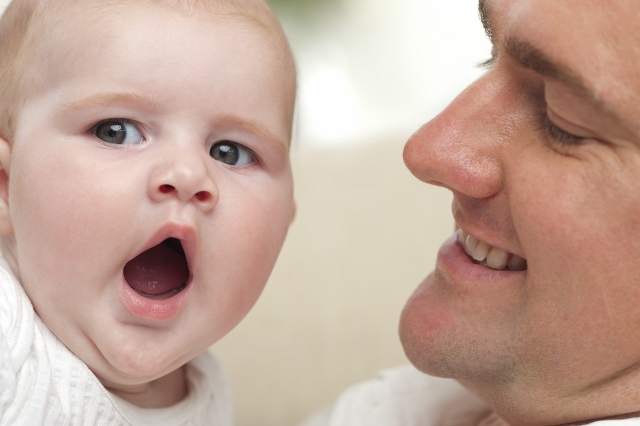On Wednesday 25th October as part of Children’s Week, Tweddle Child and Family Health Service is presenting a half day seminar which will explore the critical importance of father-child attachment in the first 1000 days of a child’s life.
Tweddle Director of Clinical Services/Nursing Ms Kirsty Evans is looking forward to putting the topic of dads and attachment at the forefront of the ‘Babies Brains Matter’ seminar. “Like mums, the first year after having a baby is a period when some fathers are at risk of stress, anxiety, depression and isolation” she said. “Research tells us that poor mental health among fathers is known to adversely affect their children’s wellbeing and development. Developing secure attachment with dad has different benefits and outcomes to secure attachment with mum”.
Fathering research conducted at Tweddle in 2012 by the Parenting Research Centre showed the majority of fathers admitted to a residential program had mental health symptoms, and one in five men were experiencing clinically significant levels of distress.
Distressed fathers reported poorer physical health and limited opportunity to eat well, exercise regularly or have leisure time. Poor father-child relationships can negatively impact on a child’s mental health both in childhood and later during adolescence an into adulthood. (Morgan Z, Brugha T, Stewart-Brown 2012)
There is burgeoning evidence supporting the contribution of fathers’ health to the wellbeing of their children. Research conducted by Dr Rebecca Giallo from the Murdoch Children’s Research Institute as well as data collected from fathers attending Tweddle has shown that 1 in 10 Australian fathers experience clinically significant distress in the first year after having a baby, and these symptoms persist from 1-7 years postpartum for 8% of fathers.
An analysis of the Longitudinal Study of Australian Children (LSAC) data found that children whose fathers showed signs of depression in the first year after their birth had three times the risk of behaviour problems (Fletcher et al., 2011).
Significant evidence supports the impact of parental stress on an infant’s developing brain. The Harvard University Centre on the Developing Child informs that extreme, long lasting stress can result in impacted brain architecture with lifelong repercussions. Supporting dads to manage their stress responses and behaviours in the first years of their child’s life helps to shape their child’s long term social and emotional outcomes.
A review of the Australian Evidence of the Impact of Fathering report found that a father’s self-efficacy and warmth in parenting are the most powerful predictors of children’s improved health, academic, social and emotional outcomes.
Tweddle is hosting the second in the series of their Babies’ Brains Matter early parenting seminars with the theme “Supporting Fathers to build strong, secure attachments with their babies and toddlers”. Specialist practitioners Scott Hall, LeAnn Williams, Dr Kate Taylor and Beverley Allen will present ‘fatherhood and attachment’ research, case studies and approaches to practice.
Visit the Fathers, Babies, Toddlers & Attachment’ Eventbrite page for bookings and more information.

